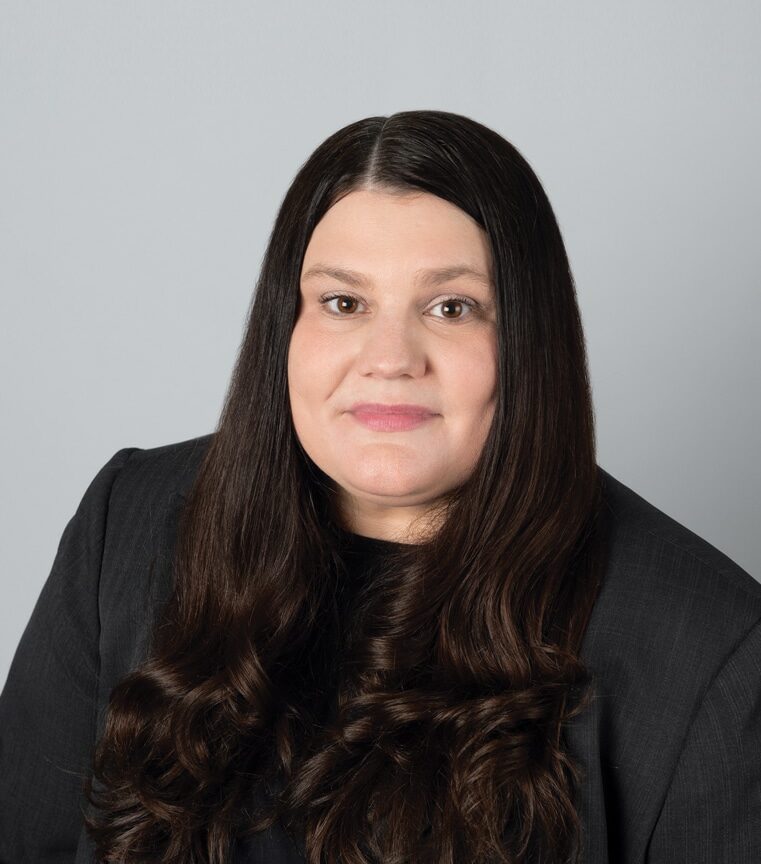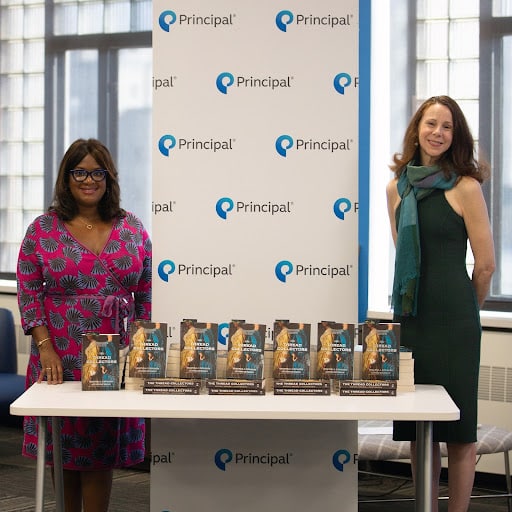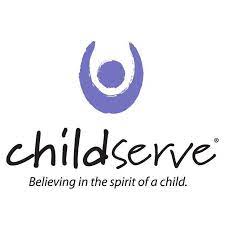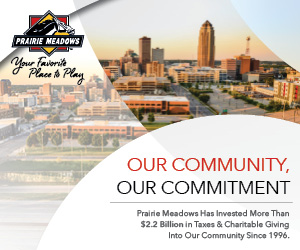‘The Thread Collectors’ authors speak to Iowans about challenges facing women – and what unites us

Nicole Grundmeier Mar 14, 2024 | 11:24 am
15 min read time
3,573 wordsAll Latest News, Women’s and Gender Issues
Authors Shaunna Edwards and Alyson Richman made a bold and unusual choice when writing their bestselling book, “The Thread Collectors” – when describing a character’s race, they capitalized both “Black” and “White.”
This is contrary to most writing style guides, including Associated Press style, which only requires that a journalist capitalize “Black.” Very few writers, anywhere, capitalize “White.”
Edwards is a Black Catholic who grew up in New Orleans. Richman is an Ashkenazi Jew from New York. The women met by chance in 2009 at a lawyers’ retreat in Las Vegas. Edwards, an attorney, saw Richman, a longtime writer, letting men cut in front of her in a line for drinks. She asked her why. They’ve been friends ever since.
The women live in Harlem now. They drew on their own family histories to write “The Thread Collectors,” which begins in a small Creole cottage in New Orleans and follows two main characters – a Black enslaved woman named Stella and a Jewish abolitionist named Lily – as they risk everything during the Civil War.
Suzanna de Baca, president and CEO of Business Publications Corp., asked the authors about their unusual capitalization choices in the book on March 7 at the Principal Financial Group Auditorium in Des Moines. de Baca was the moderator for a Principal-hosted event that featured Edwards and Richman, who spoke to a large crowd gathered in celebration of International Women’s Day.
“That was the decision we made on our first full writing day,” Edwards said. “When you’re reading a book, you rarely see a character described to you as ‘a white woman’ or ‘a white man’; it’s like, ‘a man’ or ‘a woman’ and then ‘a Black lady walks through.’ And I think it is important to highlight that someone is Black and Jewish. Then ‘white’ has to be equally important to highlight that someone’s voice, and, if it’s not important to highlight that someone is white, then maybe we should pull back from the highlighting of the person as Black or Jewish.”
Richman added, “It made me, as an author, really conscious of how I used it in the past and how I use, in the future, black and white. … We are all people, we are all humans.”
Event sponsors included the Chrysalis Foundation, the Iowa Women’s Foundation and Women Lead Change. Here is an exclusive Fearless interview with authors Edwards and Richman.
Responses have been lightly edited for length and clarity.
Fearless: Tell me about how you met, and why you decided to write this book.
Richman: We met in 2009. I had just had my second child. I hadn’t been on a vacation in several years. My husband said he was invited to an all-expenses-paid lawyers’ retreat in Las Vegas. I couldn’t get on the plane quick enough, because it included a massage for the couple. That night at the reception, I was standing in line at the bar, and every lawyer in front of me looked like he needed a martini more than I did. All of a sudden, out of the corner of the room, this beautiful young woman came charging over and said, “Why are you letting every man cut in front of you?” I was wearing this bright-colored dress, and then she said to me, “You’re not a lawyer, are you?”
Edwards: At the time, I was a practicing lawyer. I practiced law for probably about 15 years as a partner in New York City. But if you can imagine, if Alyson stood out in that room, I definitely stood out in that room, right? Young, Black woman, and I had been unceremoniously stood up on my layover too, so I didn’t even have a plus one for the massage. And I think I said, “Why are you here?” I was like, “I barely want to be here.” Her husband’s a lawyer. And then I said, “What do you do?” And she said, “I’m a writer,” and I’m sure my eyes sparkled. I majored in literature in college. It was always probably a secret dream to write a novel, but I was raised to be very practical. My parents are children of the 1960s: “Go to college, get a degree, get an education, keep a roof over your head.” I think I just demanded that she be my friend. From then, it was just a shared love of books.
Richman: We always love to eat well when we see each other, so we’d always need to (get) food somewhere in New York City. The first thing out of Shaunna’s mouth was always, “What are you working on? What’s your next book?” So, to answer your second question, back in 2017, we were meeting for lunch, and Shaunna said, “What are you working on?” And I said, “I have this idea in the back of my mind to write a Civil War novel.” I have this sort of unusual family story that my grandmother had told me when I was a little girl, that on our family tree, I had two great-great-great-uncles who fought on opposite sides in the Civil War. They were German Jews whose parents had come from Germany, from Europe. But when the Civil War broke out, one of the brothers was down in Mississippi, and the other one was up in New York. And they took opposing sides in the war and enlisted. According to my grandmother, it broke up the family forever. It was never healed, and she sort of would giggle and say, “You know, we supposedly have family down south still, but now they’re Baptists.” That was sort of the end of her story, but I always thought it would be a really interesting family story to mine for a possible novel of two brothers, who are children of immigrants themselves, new to this country, outsiders themselves in this country because of their religion, and how this permanently divides them.
And so I said to Shaunna, that’s always been in the back of my mind, but I recently also saw this fascinating documentary done by Ric Burns called “Death and the Civil War.” I learned that 180,000 Black men fought in the Civil War, and instead of being given muskets to fight they were given pickaxes and hoes. They were forced to do all sorts of manual labor like digging latrines, but also burying the Civil War dead. The documentary also went on to say that often, because the dead had to be buried so quickly, these maps were created, often on the back of pieces of paper or letters in their journals in the hope that after the war ended, these maps can be given to the family members of those who perished on the battlefield and the bodies could be exhumed and brought back to their families for burial. So I said to Shaunna, wouldn’t it be interesting if there was this unexpected friendship between a Black soldier and a Jewish soldier on the battlefield? And something happens to the Jewish soldier and the Black soldier makes this map, and somehow it gets into the hands of the Jewish soldier’s widow in New York? I had this whole idea in my head of how it could weave in the backstory as a Jewish soldier with his brother down south, fighting in the Confederacy. And I said, “What do you think, does that sound crazy, Shaunna?”
Edwards: I said, “Well, no, it doesn’t sound crazy.” Being from Louisiana, the Civil War and the history of it is maybe a little bit more present than if you live in other regions. To go to high school, I had to go around Robert E. Lee Circle. The Civil War has always been something I’ve been really interested in. I thought the idea was intriguing, but I was immediately drawn to the character of this Black soldier. There were free Black men, of course, that fought during the Civil War. But the way we had been talking about this person, he probably would have been enslaved, would have been a freedom seeker. And it would have been illegal to teach him how to read and write. So what does this map look like? It’s not going to be traditional. It doesn’t say, “Turn left.” In my mind, it kind of came through all of a sudden: I saw this woman, this Black woman, and she’s sewing a tactile map. That is how, at the time, they repurposed what little they had. So I was thinking about this rich tradition of African American textile history. I said to Alyson, “What if this guy gives the information he has to his beloved, and she sews a map or something? And then that’s how it’s preserved. Because, how else are you going to get a paper map to the battlefield? And she was like, “Oh, yeah.” And then I think I called for another glass of wine.
Richman: She was adding to the story, this rough idea. But when I left Shaunna that afternoon, I was so incredibly inspired, but honestly, something in the wind was telling me that I wasn’t quite ready to write this book. There’s always a zeitgeist moment where you’re like, “This is the time to write this particular book.” There was something holding me back. I went on to write another novel, and then in 2020, when we were in the throes of the pandemic, when we all saw the brutal murder of George Floyd, there was this reckoning of social and racial injustice that we were seeing and wanting to work on something that illuminated how there was so much divisiveness in our country that could be traced back to its very beginnings, but also wanting to work on something that would be hopeful, that would create bridges, that would be a beacon of hope at a time when we were sheltering in place and there was unknown and there was unrest. So I started to return to this idea of the Civil War book that I had discussed with Shaunna in 2017. But when I returned to it, it didn’t feel like it was wholly my own anymore because of Shaunna’s contributions. She had already shaped it in such a special, unique way. And it wasn’t like she was saying, “Yes, that’s a great story.” She was adding building blocks to this story. … Knowing she always dreamt of writing a book one day, I thought, well, maybe we could actually write this together. So I picked up the phone and I said, “Shaunna, you remember that conversation that we had back in 2017 with my Civil War book idea, and you had the idea with the map?
Edwards: I’m sure I answered quite tentatively. She said, “Would you like to explore writing this book with me?” I hung up the phone and I turned to my then-fiance, now-husband and I said, “Alyson wants me to write a book about the Civil War with her in the middle of a pandemic.” He said, “Hmmm, how do you feel about that?” … I think for me, at the time, my day-to-day corporate job was really helping manage the response to what was going on in the world. I was working directly in that area. He said something that for me was really illuminating. He said, “You say you don’t know how you can make a difference, how you can make an impact. But what if this is that way? What if this little step forward is the way that you’re actually going to make it through?” And so I called Alyson, and I said, “I’ll try.” And I always use the words, “I’ll try” because we often think we have to be, particularly as women, all the way there. I’m sure you guys have read those studies that say we don’t apply for a job unless we fulfill nine out of 10 qualifications, a man will be breathing and he’ll just apply for the job, right? And there was so many things in my mind that were like, “How dare you think that you can write a novel with a bestselling author?” But I had to try, and it’s led me on the greatest adventure.
Richman: At first we were like, “We’ll start 40 pages and we’ll see if we can figure out a way to write this together.” Because right away, we knew we didn’t want to do it in two separate voices. I wanted to create one seamless voice. We decided we would use a Google Doc — we thought we were geniuses for coming up with that — we would create 40 pages together. Also, we didn’t want to ruin our friendship. We wanted to make sure that we can respect each other and work and create something that we felt had historical integrity and emotional intensity. We started referring to the project as our legacy project, that this was going to be here when we were no longer here. So those 40 pages flew by. Then we were able to sell the book, and we had a crazy deadline: She was getting married. I think we wrote the book in nine months. I normally take about a year and a half to two years.
Edwards: We had no social obligations. It worked out. We’re still friends
Richman: Now I’m working on a solo book, and I actually prefer Google Docs because we’ve learned when writing together to write notes to each other, like if there was a passage that one of us didn’t hear it the same way or wanted to work in a different way. You know, you could highlight it and put a bubble and say, “Let’s discuss this.” But now I do that just to myself, “Fact-check this.” I never did that in Word.
Fearless: What advice would you give to women who want to be writers? I know a lot of people who have an idea for a book in the back of their mind. What advice would you give to those women?
Richman: I think a lot of people feel overwhelmed by the project of creating a 350-page book, per se. But books aren’t created in a day. They’re created over years, typically. If you do just a little bit, if you make a promise to yourself that every day, I’m going to write 50 words, 100 words, 150, whatever you think you can manage, eventually you will be building out a book. So as long as you’re moving a step forward toward the overall goal, I think you shouldn’t get so overwhelmed by negating the possibility that it seems too overwhelming. It’s these little steps that build into something beautiful.
Edwards: I would also say, listen to the stories around you. I think we often discount the stories that we hear and that we know, like Alyson heard from her grandmother, because they’re familiar to us. Your story doesn’t have to be about the Roman Empire. It could be something very, very quiet, but it could be completely fresh and exciting to someone else who hasn’t sat at that dinner table and listened to it. I think we both learned a lot about digging up more.
Richman: Our mothers coming up and revealing things that they hadn’t thought about in years, not thinking it was important.
Edwards: The character of Janie is inspired by an ancestor of mine who managed to become financially independent and a landowner and even a lender to people in her family, but they would get kind of peeved because she would charge interest, which she should have. I was explaining to my mom about the character of Janie after we published the book, and Mom’s like, “Do you know we have Janie’s pot?” I said, “What are you talking about?” And I’m looking by these bookshelves in the background, and there’s this old rusted cast-iron pot, which apparently was great-great-great-aunt Janie’s pot that went through Hurricane Katrina, and my mom saved.
Richman: My great-great-great-uncle, who was a musician in the Union Army, that is the inspiration for Jacob, his sister was my great-great-grandmother. And so my mother, after we’d written the book, and we have Lily, who sews quilts, is like, “Oh, I have Great-Great-Grandma’s gold thimble that she used for sewing.”
Fearless: You mentioned a lot about colorism and about discrimination that you’ve experienced. Personally, what do you see as the biggest challenge facing U.S. women right now?
Edwards: I think storytelling is incredibly important because it reveals our commonality. I think that one of the biggest challenges facing women is one of the biggest challenges facing people, and it’s our insistence on focusing on the ways in which we are different. Women still have incredible challenges to overcome as a gender, and those challenges, whether you are upper income, lower income, college educated, not college educated, they might vary by degree, but it is still very similar. And without that kind of bonding around those shared challenges and shared solutions, we’re not going to get anywhere. I have no interest in fighting with Alyson about the fact that she’s White and Jewish, and I am Black and Catholic. I have a lot more interest in figuring out, “OK, we both want to raise incredible children. We both want safe neighborhoods, we both want great schools.” That’s a lot to bond over. And that’s a lot to figure out: “OK, what can you bring to the table? What can I bring to the table?” But I think there are a lot of forces at work, not all of them internal, some of them externally applied, that reap a lot of benefits from having us focus on our differences. You have to be willing to speak to someone that you might not think you have anything in common with, and you have to be able to cross the room and say, “What are you doing here, and I love your dress.” And it’s not going to always work out; 80% of the time, you may get a polite smile, but 20% of the time, you find someone who can become one of your best friends, and I take those odds any day.
Richman: I think you need to have courage to be able to speak your own mind and know what is important to you, what is worth fighting for. When you think about how women have fought for the right to vote, what that means, there’s a responsibility to know who you’re voting for and what that represents.
Fearless: Besides your own work, what’s your favorite book?
Edwards: I love anything by Jane Austen, because I was a 19th-century English major and there’s nothing better than a little family drama. And, oddly enough, I am captivated by hokey detective stories in the genre of Raymond Chandler, because there’s something about the grit and something about a femme fatale sitting in a bar with a bourbon that I just can’t get away from.
Richman: I think my favorite novel is “One Hundred Years of Solitude” by Gabriel Garcia Marquez. I like to cite that one because I have such a clear memory of being in college and reading that book, and putting the book down at a chapter in which Mauricio Babilonia has passed away. He was his character that used to walk through the streets with butterflies being suspended almost like a yellow halo over his head. In this particular chapter, he had passed away, but he was a painter and the paint was still on his beloved’s skin as she started to walk through the streets in mourning; the butterflies followed her. I remember putting down the book and thinking, “If you write well, you can convince the reader that anything is possible,” and it really just struck me. There was magic in his writing. That ability to make me close my eyes and believe that you could see people walking down the street with butterflies flapping by their fingertips and above their head, just was amazing. So it’s never left me. I always think that sometimes when I’m having difficulty writing a passage, I just take a break and I close my eyes and I just remember trying to distill the scene slowly, choose your words really carefully. And eventually you’re going to get there.
Fearless: Do you think there will be a follow-up book, written together?
Edwards: We actually see this as a series – don’t dream small, ladies, dream big! What we’d like to do is explore this family against the backdrop of history and against the changes in the musical industry, too, so we have an idea where a novel set in Reconstruction would go, which is not a time period people write a ton about, and then maybe into the ’20s of the Harlem Renaissance, with fascism in Europe, and then on into the ’60s and the civil rights era was so important, but also so many Jewish allies came to the forefront fight for Black rights.

Nicole Grundmeier
Nicole Grundmeier is a staff writer and copy editor at Business Record. She writes for Fearless and covers arts and culture.










